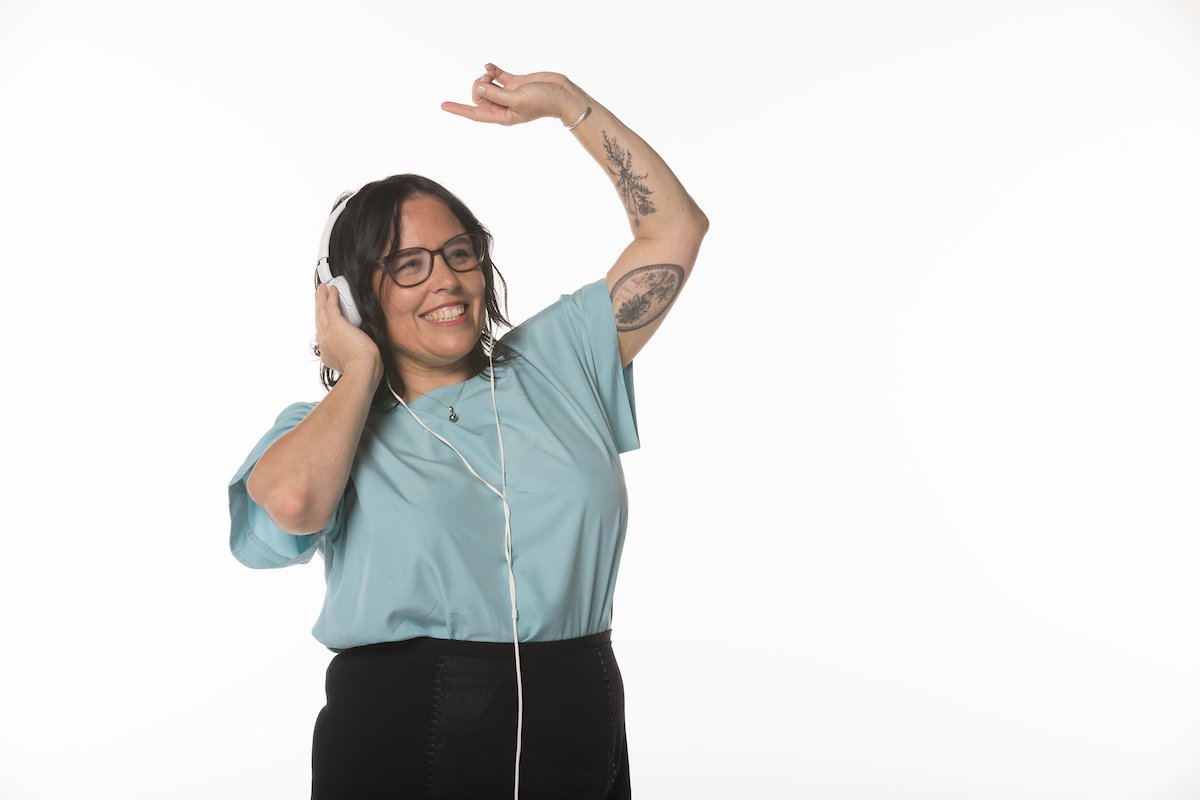Listen up: Jennifer Stoever researches the sounds that surround us

Close your eyes and listen. What do you hear — the hum of cars, the chatter from a television set, church bells, the call of a bird?
Soundscapes are more than just an auditory backdrop; they transmit essential information about a culture, including racial lines. In her 2016 book The Sonic Color Line: Race and the Cultural Politics of Listening (NYU Press), Binghamton University Associate Professor of English Jennifer Lynn Stoever explores how soundscapes both reflect and shape American ideologies of white supremacy. This past year, her study has been at the center of the “Stand For Sonic Diversity” pledge in the voiceover industry. Supported by Pandora, Stitcher and SiriusXM, it pushes for concrete policies guaranteeing that the voices of people of color will make up 50% of on-air advertising.
But the impact of her research hasn’t stopped there.
“All of my projects are interested in the meaning of sound to people and the meanings we make of sound,” she explains. “That’s the core of it: What is the role of sound in our lives? How is it a form of sociality, of connection and of conflict? And how can my research help people better understand that and potentially intervene in some of those deep conflicts?”
Stoever is co-founder and editor-in-chief of Sounding Out! The Sound Studies Blog, which functions as a hub for scholarship about sound studies, an interdisciplinary field centered on conceptualizations of sound. It features both academics and nonacademics, offering diverse conversations about the sounds that surround us, including the intersections of sound and protest.
Closer to home, she has also directed The Binghamton Historical Soundwalk Project, a research-based arts collaboration that connected students taking her sound studies course with the local Binghamton community via a partnership with TechWorks! Binghamton and its director, Susan Sherwood.
Students both researched Binghamton’s history and recorded sounds from throughout the local area, trying to capture the city in sound. In conjunction with the Center for Civic Engagement, students then pitched ideas for sound-related community projects at a fair hosted in the Mandela Room in the University Union, showcasing their work with local residents.
Later phases of this project found Stoever’s students collecting oral histories, researching in archives and giving presentations about “soundwalks” throughout Binghamton, ultimately building a sonic archive of the city. Then in May 2018, sponsored by a grant from the Whiting Foundation, students made these sounds into a series of live art installations throughout downtown Binghamton, bringing together hundreds of students and residents.
“We had students go out and make connections with the community, talk with people, listen, ask them what the strengths of the community were and how the kind of work we were doing in class could build on those strengths. And that’s how we encourage students to approach the community: not from a place of deficiency or need, but what can we do to join in and strengthen it?” Stoever explains.
Currently, Stoever and her soundwalk collaborator, Associate Professor of Cinema Monteith McCollum, are in the documentation phase, working on creating a CD showcasing all the projects and student-led interviews with community members. She is also launching a multimedia digital community archive devoted to the history of Binghamton punk rock with Binghamton University Art Museum curator Claire Kovacs, Binghamton University Libraries stacks maintenance coordinator John Lee ’02, art history graduate student Stephen McKee ’21 and local community member Brianna Motunrayo Olaiya.
Next, Stoever plans to pivot her research toward early hip hop and the history of Black and Latinx women in the ’70s, and ’80s, and particularly how they cultivated record collections as part of their daily lives. Stoever hypothesizes that the children of these women became early hip hop deejays, emcees, dancers and performers.
“I’m tracing hip hop back to the way mothers heard the world and the way their mothers passed on music, a way of listening to their children,” she explains. “That’s hip hop, that way of listening.”
What we hear offers deep insights into our world, and research into this field offers a wide field for exploration. Stoever moves between her various projects with the expertise of an audio engineer.
“It’s like I’m using a fader. I turn up one project that needs my attention and go hard, and then shift when I need to. Because there’s just so much work out there to do in the world on this subject that you’ve got to seize the moments,” she says.

